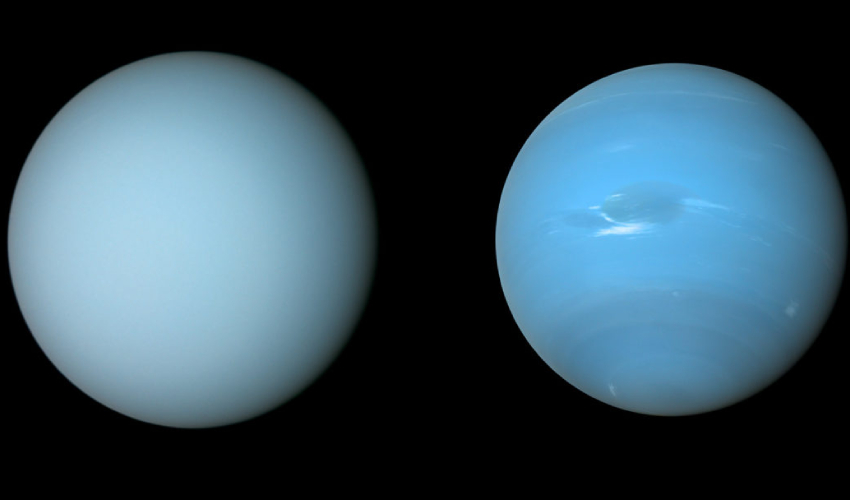For decades, we've held onto a romanticized view of Neptune and Uranus, envisioning them as vibrant blue and emerald green, respectively. But a recent study by UK astronomers throws cold water on these preconceived notions, revealing a more muted reality.
Professor Patrick Irwin from the University of Oxford, who led the research, explains that the iconic images we know hail from NASA's Voyager spacecraft in the 1980s.
While valuable for scientific purposes, these pictures were "enhanced" to highlight atmospheric details, inadvertently skewing their true colours.
To set the record straight, Irwin's team employed data from sophisticated instruments like the Hubble Space Telescope and the Very Large Telescope. Their analysis unveiled a more harmonious reality: both planets share a subtle greenish-blue hue, with Neptune exhibiting a slightly bluer tinge due to a thinner haze layer.
The culprit behind the colour misconception? It turns out the Voyager team combined three-colour captures into composite images, inadvertently amplifying certain hues.
Irwin's study, published in Monthly Notices of the RAS, meticulously analyses continuous spectrums of light, providing a more nuanced and accurate portrayal of the planets' true colours.
This revelation is more than just aesthetic correction. It highlights the vital role of precise data analysis in planetary science. Uranus, for instance, displays intriguing seasonal variations in its colour depending on its position relative to the Sun.
Understanding these nuances could unlock valuable insights into the planets' atmospheric compositions and dynamics.
So, the next time you picture Neptune and Uranus, ditch the vivid blues and greens. Instead, imagine them bathed in a subtle, ethereal greenish-blue glow, a testament to the intricate dance of light, haze, and atmosphere that defines these distant giants.
This groundbreaking study reminds us that scientific exploration is a constant process of refinement and revelation.
By meticulously analysing data and challenging our preconceived notions, we unlock a deeper understanding of the universe and its countless wonders.




























